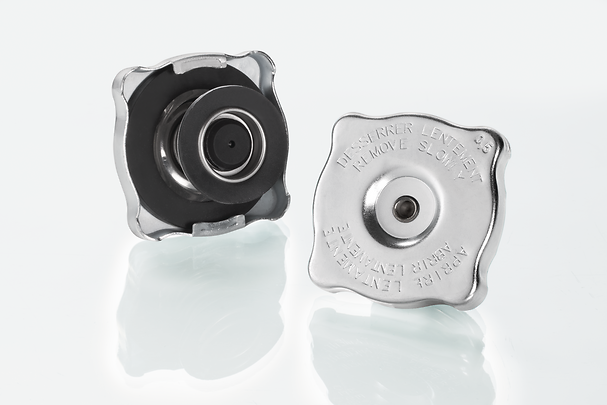Oil coolers

An oil cooler is a separate, smaller radiator to an engine's main radiator, which maintains an oil supply at a consistent, optimal temperature. Its purpose is to cool the oil passing through the coils, thus improving the engine and the transmission’s lifetime. They are situated in front of an engine's cooling system. Oil coolers are necessary for diesel engines (higher temperature range) and automatic gear boxes. A cooler plays an important role in the smooth running of a vehicle by dissipating heat while transporting oil away from moving parts into the oil pan.
Valeo oil cooling offer
- Covering key applications worldwide
- Valuable experience in oil cooling solutions, from air to oil architecture to water oil coolers
- The range is split between 2 main segments: Engine oil cooling and transmission oil cooling
- Design driven by innovation to reduce consumption
Valeo has strong experience in developing Engine Management Systems products and offers the best possible technological solutions for the challenging aftermarket. Valeo offers a smart radiator range along with a complete range of Engine Cooling Products.
Choose Valeo as your engine cooling specialist:
- One of the O.E. leaders in Engine cooling,
- A wide and continuously growing range
- Original quality products, and original design respected
- A large Cooling Management loop offer
- Traceability label for easier identification.
- Valeo products are very quickly available for the aftermarket
- User-friendly and quality packaging
- A complete oil cooling offer: key worldwide applications covered, Wide solution range: from air to oil architecture to water oil coolers, 2 main segments: engine oil cooling and transmission oil cooling
Valeo info:
- Causes of temperature increases
- Contact with hot parts of the engine
- Contact with the piston
- Pressure in the oil pump and the bearings
- Temperature inlet: 150 °C / Outlet temperature: 125 °C
- Hill climbing
- Temperature drop ~ -30 °C on piston
- Oil cooler causes of failures:
- Crash / gear box replacement
- Corrosion of the Core
- Stress: thermal shock, cycled pressure
- Incorrect maintenance Failures start to occur when oil cannot dissipate its collected heat fast enough and rises past this threshold. When damaged, oil loses its lubricating and cooling properties.







